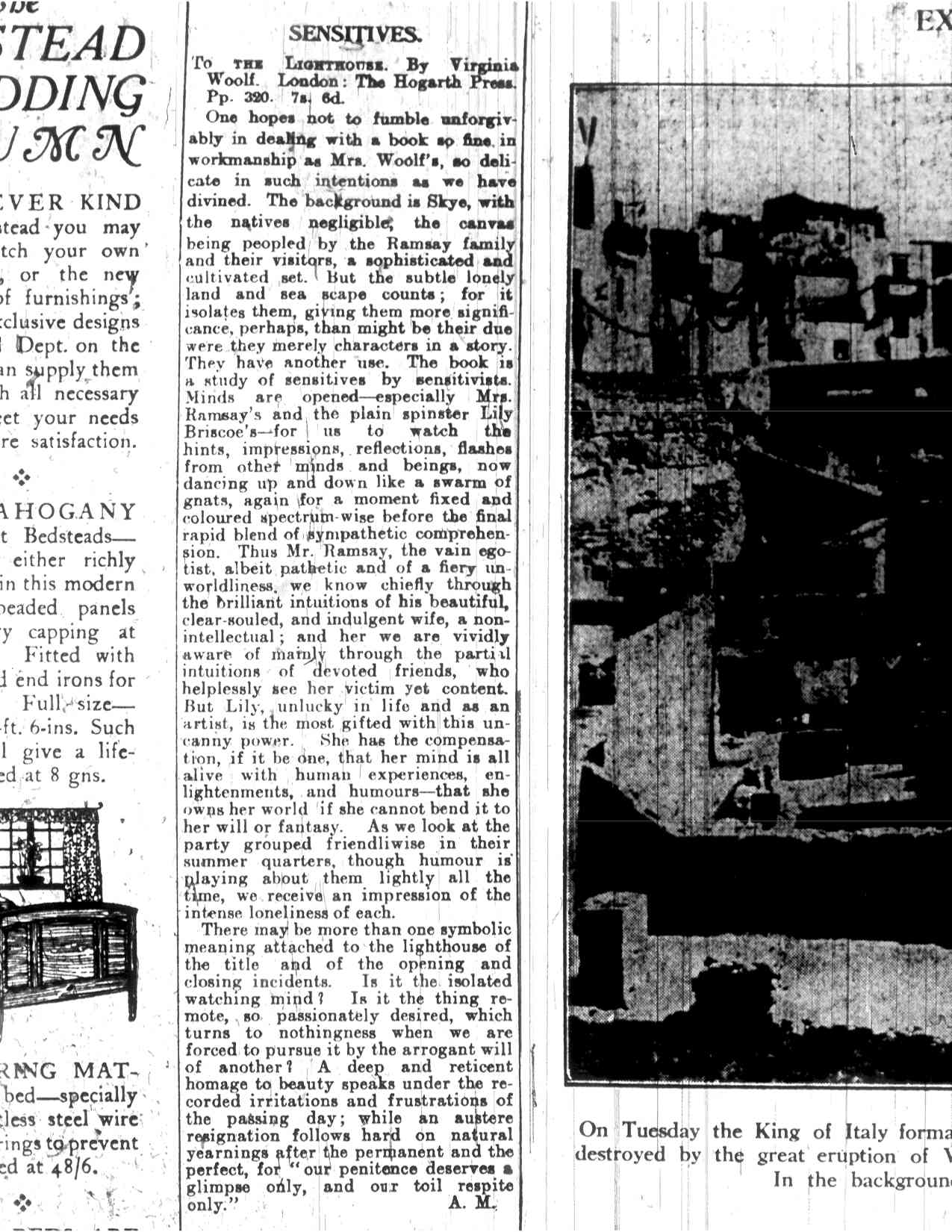
A. M. “Sensitives.” The Manchester Guardian. May 20, 1927, p.9.
SENSITIVES.
TO THE LIGHTHOUSE. By Virginia
Woolf. London: The Hogarth Press.
Pp. 320. 7s. 6d.
One hopes not to fumble unforgivably
in dealing with a book so fine in
workmanship as Mrs. Woolf’s, so delicate
in such intentions as we have
divined. The background is Skye, with
the natives negligible, the canvas
being peopled by the Ramsay family
and their visitors, a sophisticated and
cultivated set. But the subtle lonely
land and sea scape counts; for it
isolates them, giving them more significance,
perhaps, than might be their due
were they merely characters in a story.
They have another use. The book is
a study of sensitives by sensitivists.
Minds are opened—especially Mrs.
Ramsay’s and the plain spinster Lily
Briscoe’s—for us to watch the
hints, impressions, reflections, flashes
from other minds and beings, now
dancing up and down like a swarm of
gnats, again for a moment fixed and
coloured spectrum-wise before the final
rapid blend of sympathetic comprehension.
Thus Mr. Ramsay, the vain egotist,
albeit pathetic and of a fiery unworldliness,
we know chiefly through
the brilliant intuitions of his beautiful,
clear-souled, and indulgent wife, a non-
intellectual; and her we are vividly
aware of mainly through the partial
intuitions of devoted friends, who
helplessly see her victim yet content.
But Lily, unlucky in life and as an
artist, is the most gifted with this uncanny
power. She has the compensation,
if it be one, that her mind is all
alive with human experiences, enlightenments,
and humours—that she
owns her world if she cannot bend it to
her will or fantasy. As we look at the
party grouped friendliwise in their
summer quarters, though humour is
playing about them lightly all the
time, we receive an impression of the
intense loneliness of each.
There may be more than one symbolic
meaning attached to the lighthouse of
the title and of the opening and
closing incidents. Is it the isolated
watching mind? Is it the thing remote,
so passionately desired, which
turns to nothingness when we are
forced to pursue it by the arrogant will
of another? A deep and reticent
homage to beauty speaks under the recorded
irritations and frustrations of
the passing day; while an austere
resignation follows hard on natural
yearnings after the permanent and the
perfect, for “our penitence deserves a
glimpse only, and our toil respite
only.” A. M.






